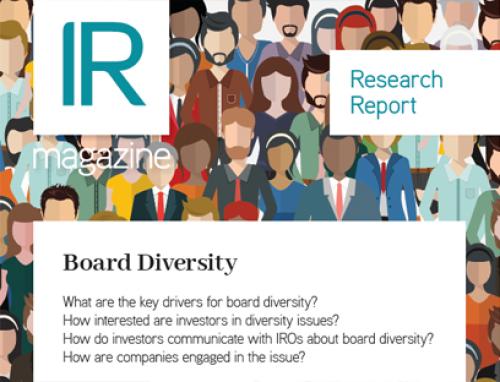Why a stint in investor relations is good groundwork for prospective CFOs
IROs tend to fall into two camps: those for whom the job is the end goal and those for whom it provides further opportunity, or a stepping stone to a higher function.
As found in recent IR Magazine research, the majority of IR professionals seem to be in the first camp: two thirds (68 percent) of global IROs say they view the function as a career in its own right, while the remainder see it as a channel to further career opportunities. Of this latter group, 48 percent have ambitions to join senior management, with almost a third (32 percent) targeting the CFO’s chair.
Anecdotally, there are several CFOs who have benefitted from their time as an IRO, including BSkyB’s Andrew Griffith and Skype’s Bill Koefoed. Skills learned as an IRO that are instrumental to their success in the C-suite include learning how to lead, appreciating a top-down perspective at their company, and being exposed to a range of stakeholders.
As Blair Christie, IR Magazine cover star (see page 7, Spring 2015) and CMO at Cisco, notes, IR is a strong place to start developing a career further. ‘Hands down, IR is the most strategic and greatest foundation for a career anyone could ask for,’ she explains. ‘I consistently tell early-career folks or even interns that IR is a great way to jump into the business world.’
Smooch Reynolds, executive vice president of global investor relations and communications practice group leader at DHR International, agrees. ‘Being a CFO today is about general business management knowledge and leadership skills, and not necessarily about being an expert in just finance – this is an increasing trend I am seeing,’ she says.
Other particularly transferrable skills, Reynolds suggests, are those that contribute to a more holistic, all-encompassing view of the company. These include ‘the ability to contribute intellectually across the enterprise, no matter what the subject, and a keen understanding of how defining corporate ethos affects the well being of the business both internally and externally,’ she continues.
This is somewhat reflected by respondents to the aforementioned IR Magazine survey. Though typically investor interaction and communication skills are named as the most widely helpful skills picked up from a stint in investor relations, 19 percent say activities around strategy or that require a full understanding of the business are crucial.
These experiences, Reynolds adds, are fundamental to producing a well-rounded CFO and mean IR can be a crucial and formative part of any prospective CFO’s arsenal. Potential gaps in knowledge can always be plugged with what she calls ‘broad experience’ across your company and sector.
‘Reach across your organization to obtain broader experiences by partnering with colleagues in different functional areas on projects that create diversity in your portfolio of knowledge and wisdom,’ she advises. That way, if you’re one of the many IROs who’s trying to springboard to bigger things and more responsibility, you’ll be well prepared.










